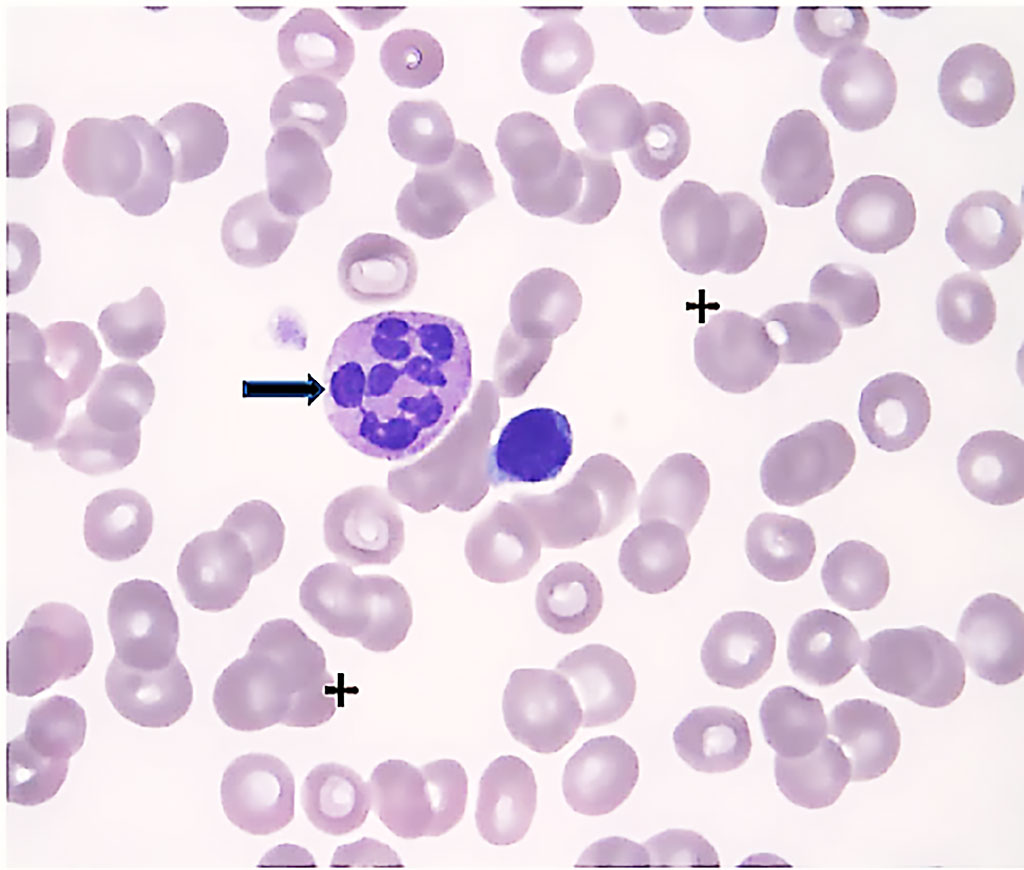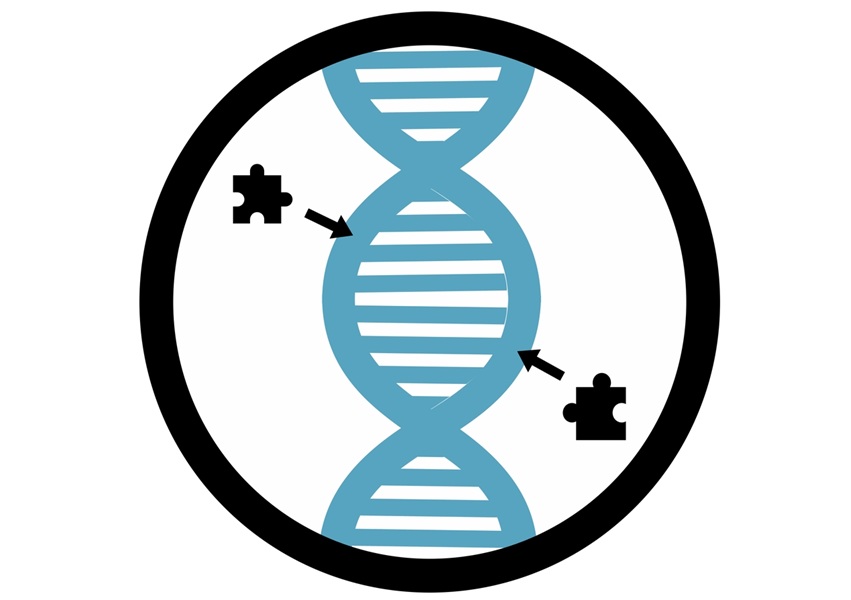Leukemic Stem Cell Score Predicts Myelodysplastic Syndrome Prognosis
By LabMedica International staff writers
Posted on 03 Mar 2020
Myelodysplastic syndromes (MDS) are clonal myeloid malignancies arising from hematopoietic stem cells (HSCs), which are characterized by bone marrow (BM) ineffective hematopoiesis, peripheral blood cytopenias, and a propensity to transform to acute myeloid leukemia (AML).Posted on 03 Mar 2020
Leukemic stem cells (LSCs) are responsible for chemoresistance and relapse in leukemia. Recently, expressions of 17 genes related to stemness of LSCs were found to be associated with prognosis in acute myeloid leukemia patients. The prognosis of patients varies even in the same risk groups.

Image: Peripheral blood smear from a patient with myelodysplastic syndrome showing macrocytic and hyperchromic anemia (cross), hypersegmented neutrophil (arrow) and moderate thrombocytopenia (Photo courtesy of Jong-Hwa Kim, MD, PhD).
Scientists at the National Taiwan University (Taipei, Taiwan) and their colleagues recruited 176 primary MDS patients diagnosed at the National Taiwan University Hospital (NTUH) from January 1992 to December 2010 who had cryopreserved bone marrow (BM) samples for microarray analysis as a training cohort. Another independent set of 30 patients diagnosed with the same criteria from January 2011 to May 2012 were recruited as an internal validation cohort.
The team profiled the global gene expression of BM mononuclear cells from the 206 patients by Affymetrix GeneChip Human Transcriptome Array 2.0 (Santa Clara, CA, USA). They analyzed expression profile of the 17 stemness-related genes in primary MDS patients and identified expression of four genes (LAPTM4B, NGFRAP1, EMP1, and CPXM1) that were significantly correlated with overall survival (OS). They constructed a leukemic stem cell-4 (LSC4) scoring system based on the weighted sums of the expression of four genes and explored its clinical implications in MDS patients.
The scientists reported that higher LSC4 scores were associated with higher revised International Prognostic Scoring System (IPSS-R) scores, complex cytogenetics, and mutations in RUNX1, ASXL1, and TP53. High-score patients had significantly shorter OS and leukemia-free survival (LFS), which was also confirmed in two independent validation cohorts. Subgroup analysis revealed the prognostic significance of LSC4 scores for OS remained valid across IPSS-R lower- and higher-risk groups. The higher LSC4 score was an independent adverse risk factor for OS and LFS in multivariate analysis.
The authors concluded that LSC4 score can independently predict prognosis in MDS patients irrespective of IPSS-R risks and may be used to guide the treatment of MDS patients, especially lower-risk group in whom usually only supportive treatment is given. This integrated prognostic system refines the prognostic prediction models and might guide the therapeutic decision and possible LSC-targeted therapy in the future. The study was published on February 20, 2020 in the journal Blood Advances.
Related Links:
National Taiwan University
Affymetrix










 (3) (1).png)


